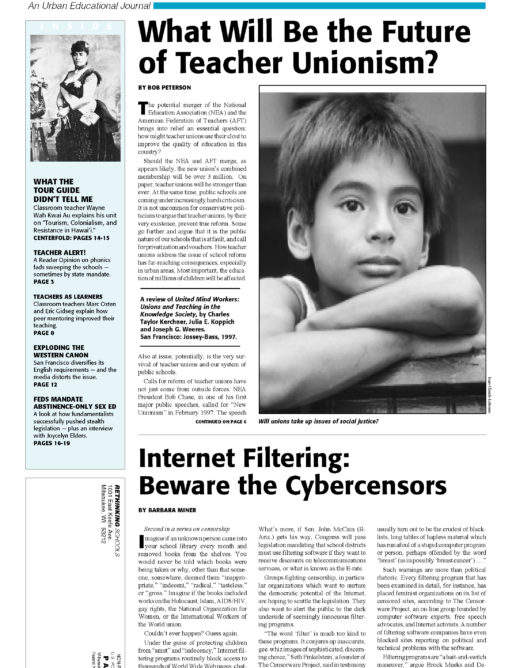Preview of Article:
Resources on Censorship and the Internet
Not surprsingly, the best resources on Internet censorship issues are available on-line. There are any number of good sites to get you started and most have links to other sites. While these resources focus on issues of censorship and filtering software, there will also be links to other Internet issues of interest to schools, such as teaching children about safety issues on the net, or appropriate use policies.
Two good sites to start out are the web pages of the American Civil Liberties Union and People for the American Way Foundation web pages; both deal not only with censorship on the Internet but censorship and civil liberties issues in general.
American Civil Liberites Union. www.aclu.org. Be sure to check out its Cyber-Liberties pages on the site. The ACLU has also published a valuable report, Fahrenheit 451.2: Is Cyberspace Burning? The report is a comprehensive look at another proposal with worrisome implications for censorship — a ratings system of web pages.
People for the American Way Foundation. www.pfaw.org. Like the ACLU, PFAW has played a leading role in legal challenges to censorship on the net. Check out its pages on Free Expression, in particular, information on its lawsuit against filtering software in the public library in Loudon, VA.
Computer Professionals for Social Responsibility. Has an especially good page on Frequently Asked Questions about filters. www.cpsr.org/filters/faq.html.</p

